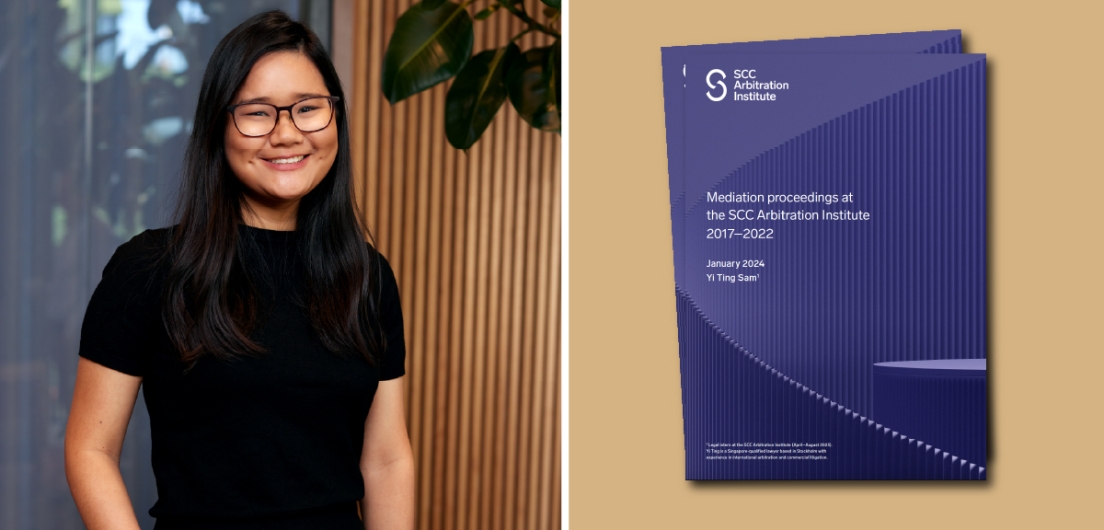SCC Spotlight Talk: Gert Nilsson Eldrimner
The SCC offers mediation services to Swedish and international companies who wish to resolve their disputes outside court. Mediation is a flexible and cost-effective form of dispute resolution where the parties are assisted by an independent third party to resolve their dispute in a considered and legally sound way.
Published 2024-01-16

Gert Nilsson Eldrimner is a professional mediator who has worked with conflicts and disputes in the Nordics since the early 1980s. Gert also frequently lectures on the subject of mediation.
Gert, please give us a short introduction to mediation in commercial disputes.
In a nutshell, mediation is a negotiation between two or more parties, assisted by a mediator to find an amicable solution to the dispute. Mediation is thus a collaborative project where the mediator helps the parties to satisfy as many of their respective underlying interests and needs as possible. While the law is relevant, other interests may take precedence, such as the parties’ continuing business relationship, or maintaining the value of their respective brands.
In a mediation, the parties are in focus, not the lawyers. The parties know their own interests and needs best and should speak in person to achieve the best result. However, the lawyers’ legal expertise and negotiation skills are still important here. In particular, lawyers are often good at listening to the other side, as well as thinking creatively with a focus on solutions that may also be attractive both sides. This increases the likelihood that the parties will reach a final agreement.
A mediator must be impartial and neutral. For example, I never take a position between the parties, give them any legal advice, or propose my own solutions. On the other hand, I can help the parties to clarify their real interests and needs, making it easier for them to find their own solutions.
Why should a business choose mediation?
There are many advantages to choosing mediation, including the following.
- Costs - In Sweden, mediation costs on average 11% of the cost of litigation, and 7% of arbitration.
- Time - Commercial mediations in Sweden are on average about 13.5 times faster than litigation and 9 times faster than arbitration.
- Efficiency - Statistically, 92% of commercial mediations lead to an agreement, meaning only 8% will need to resort to litigation or arbitration.
- Self-determination - In mediation, the parties decide their own solution based on what is best for them. The parties are in a far better position to know this than a judge or arbitrator.
- Business relationships - Mediation often helps the parties maintain, even develop their business relationship, especially if they ask a mediator for help at an early stage, before the conflict has escalated too much.
How likely is it that the parties going into a mediation will succeed in finding a solution?
According to English statistics from 2022, 72% of commercial parties reach an agreement in a one-day mediation. For parties who return shortly after the mediation day for a continued mediation session, a further 20% reach an agreement. Overall, this means that 92% of the mediations lead to an agreement and only 8% of parties need to resort to the courts or arbitration.
So, if you would like to include the possibility to mediate disputes in your agreements, how do you do that?
The best way is to be sure to use a so-called “combination” dispute resolution clause in your agreements. If a dispute arises where the parties have used such a clause, the first step, assuming direct negotiations between the parties fail, is for the parties to go to mediation. In the unlikely event mediation also fails (remember, 92% of mediations are successful!), the next step is court or arbitration proceedings. The SCC provides model combination clauses here, I definitely recommend them!
However, if a dispute arises and the parties’ agreement does not include mediation as a first step, one of the parties may propose to the other that the parties agree to try mediation first. If both parties agree to mediate, they can also agree to use the SCC’s mediation rules, available here. Then, in the unlikely event the mediation does not resolve the dispute, the parties may obtain a final decision from an Arbitral Tribunal, appointed according to the SCC's Arbitration Rules, available here. Again, I recommend using the SCC’s model clauses, which can be used by parties both before and after a dispute has arisen.
